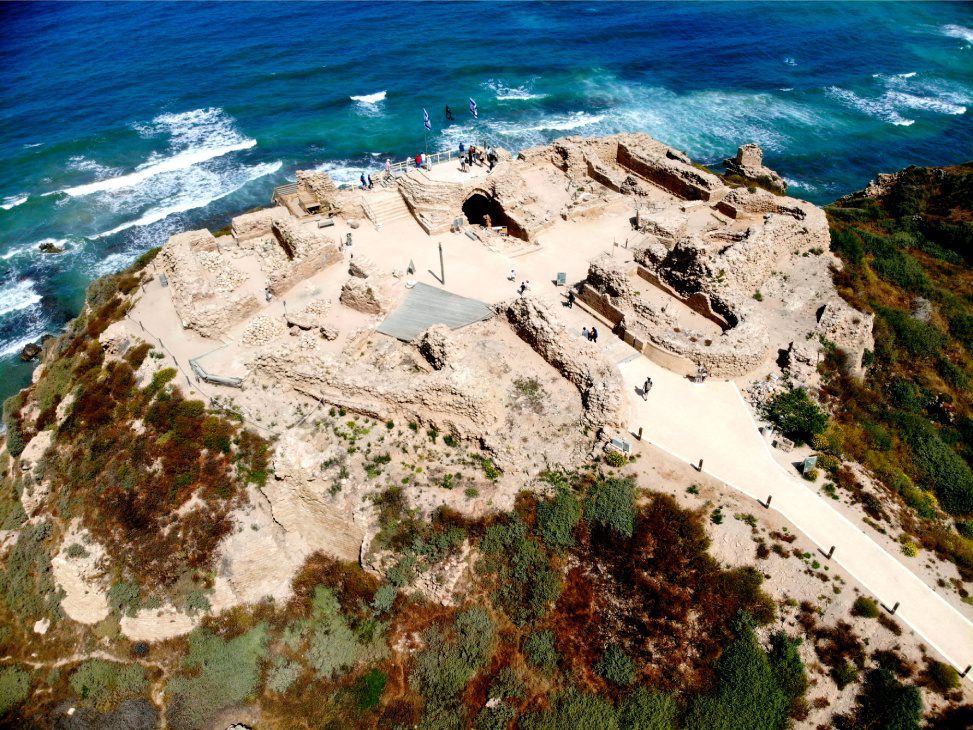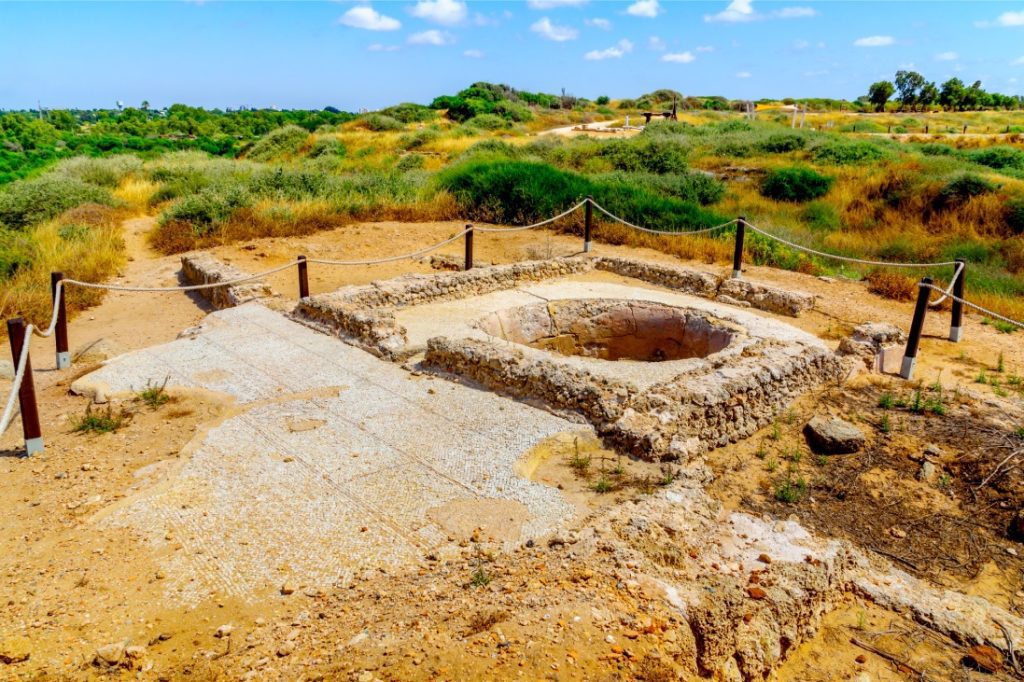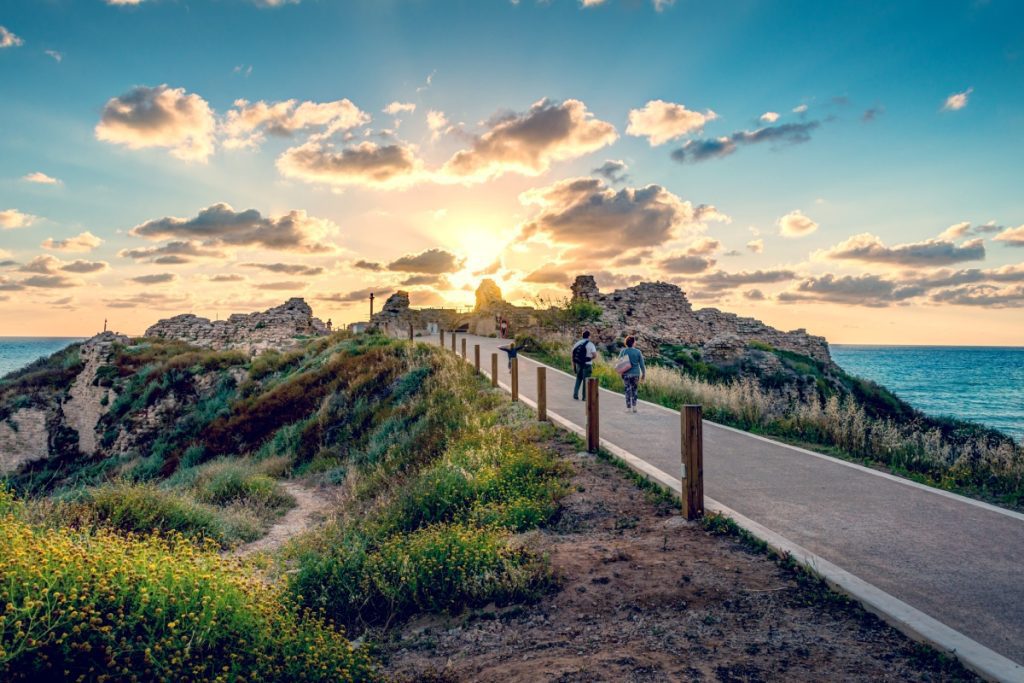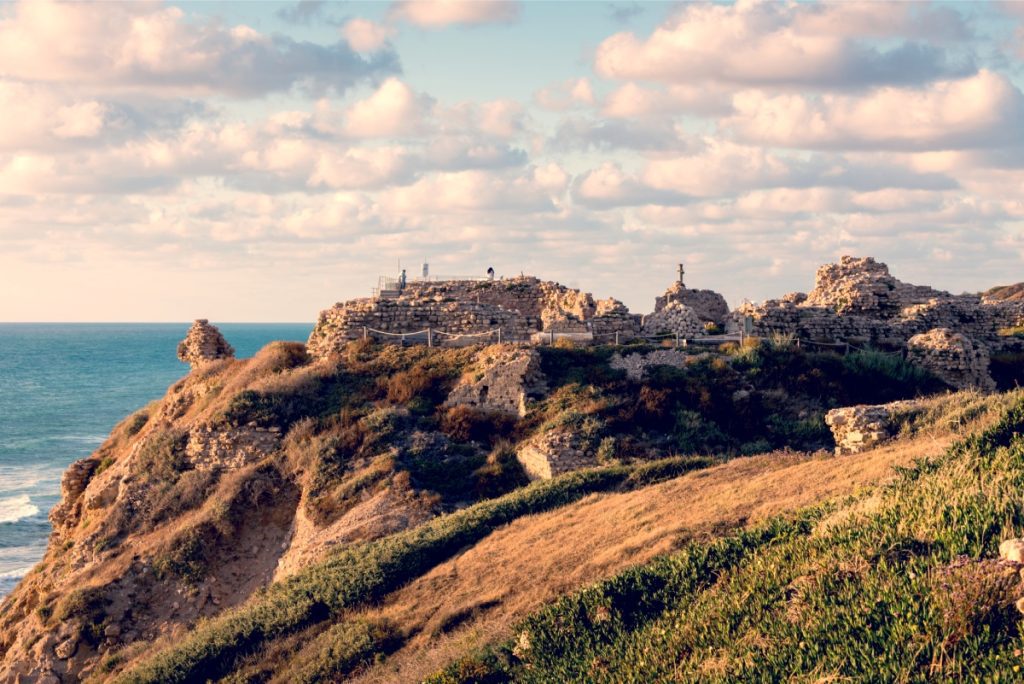Apollonia National Park is the site of an ancient town that dates back to the 6th century BCE; when the Phoenicians settled the area. The people of this city were known for their production and export of purple dye. Originally called Arsuf, after the god Reshef, the city would trade hands and names many times over the coming centuries. The name of Apollonia comes from the Greeks, who identified Reshef with the god Apollo.

During the time of the Romans, Apollonia grew and developed; however, it wasn’t until the Byzantine period that Apollonia, whose name had changed to “Sozousa,” reached its peak prosperity and became an urban center. The following years would lead to the decline of the city under the Muslims and Crusaders. Then, in 1265, the city was captured and razed to the ground by the Mamaluke Sultan Baibars. It wasn’t until 1942, when the British police established a station, that the area became occupied again.
Apollonia National Park – on the Edge of the Med Sea
Apollonia National Park is perched on the Mediterranean Sea, just north of Tel Aviv. The crumbling ruins of this ancient city give way to stunning views over the rugged cliffs leading to the Mediterranean’s glistening waters. The park is more than just ruins; it is home to a complex and gorgeous ecosystem. Every plant and animal here has to be able to withstand the rugged sea and its salty spray.

You will find shrubby saltbush, Mediterranean lavender, and woodlands planted by man. Hiding amongst the flora, you will find a vast array of fauna, including red foxes, gazelles, porcupines, and star lizards. Relaxing on the sands below, you may be lucky enough to see a Greek tortoise. Make sure to look up; you might just spot Eurasian stone curlews, hoopoes, and the Syrian woodpeckers.

Apollonia National Park is a place where history meets nature. Here you can explore the ancient archaeological sites from the city moat to the glass furnace to learn about the people that once called this site home. Beyond the ruins, there is a natural landscape to explore. You can go hiking along the trails, some of which take you along the breathtaking cliffs. Of course, you must stop at the lookout points for pictures!

If you visit the Apollonia National Park in the summer, the park hosts Friday sunset concerts. The magnificent views combined with the show will provide memories that last forever. If you want to experience the best Apollonia National Park has to offer, join me on a private tour!
Opening Hours:
Entrance to the park closes one hour before cited closing time
Summer hours:
Sunday–Thursday and Saturday: 8 am – 5 pm
Friday and holiday eves: 8 am – 4 pm
Winter hours:
Sunday–Thursday and Saturday: 8 am – 4 pm
Friday and holiday eves: 8 am – 3 pm
Holiday eves: 8 am – 1 pm Yom Kippur eve: 8 am – 1 pm